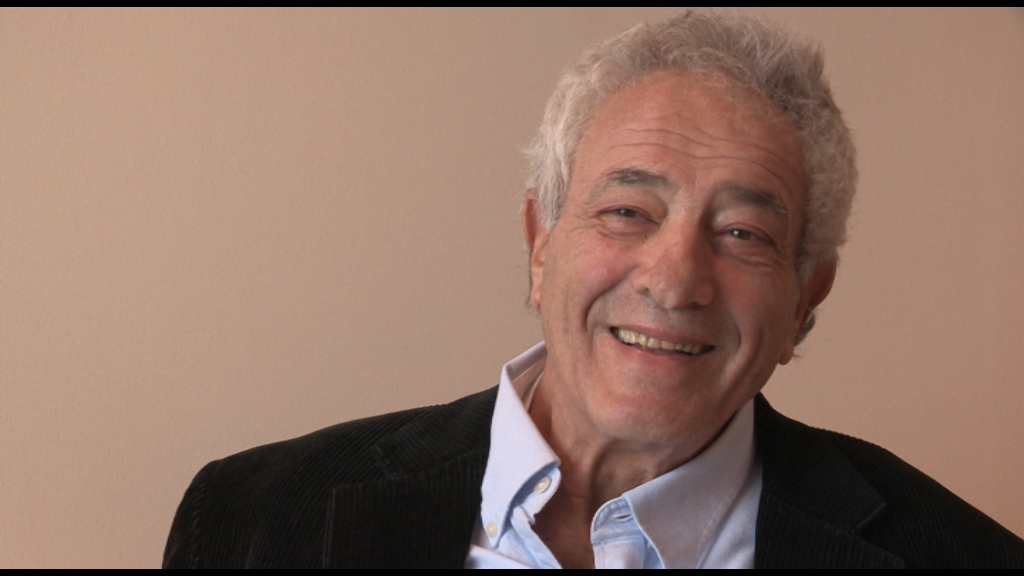NEXT STORY

A fondness for Britain
RELATED STORIES

NEXT STORY

A fondness for Britain
RELATED STORIES


|
Views | Duration | |
|---|---|---|---|
| 61. 'I have met the enemy and they is us' | 28 | 03:52 | |
| 62. Penguin Books come to America | 18 | 03:00 | |
| 63. Penguin Books and the American mass market | 15 | 04:15 | |
| 64. Moving back to America | 19 | 05:44 | |
| 65. Proud to have saved Penguin Books | 23 | 04:42 | |
| 66. A fondness for Britain | 18 | 03:26 | |
| 67. Politics at Penguin Books | 55 | 07:47 | |
| 68. Tackling Penguin's notion of conformity | 27 | 01:40 | |
| 69. Consolidating Penguin Books | 25 | 07:31 | |
| 70. Of no fixed abode | 22 | 03:21 |


Those were the most dramatic years. And I have written about that from a political context, or from a political point of view, in a book that has been published this year, I think, by the University of Manchester Press, a chapter about Penguin in the 70s and 80s because it was... I came in the Callaghan period, the Labour period, the Winter of Discontent, and I... in I don't know year. Mrs Thatcher was '79 or '80 she became the prime minister. And there was an enormous change, as we all know, in Britain, as a result of Mrs Thatcher becoming the prime minister. First, when she became the leader of her party, I don't think many people in Britain knew how far to the right she was. She was obviously to the right, she was a Tory, anyway, but I think she surprised many people. And I think it is fair to say that, not only did she control the industrial situation, but she went a long way down the road to destroying the unions or destroying their power. She, of course, didn't destroy the unions, but she did erode their power in a significant way. And this changed the context for the individuals who had come to Penguin straight from university, many of them, not all of them, but many of them, seeing Penguin as a vehicle for social justice.
I saw it, probably, to some extent, as they saw it, but I saw it, also, in a way they did not see it, partly because it was my job to fix it. I saw it as a publishing company, and was not a national institution as the BBC. It was privately owned! And I knew that it would be either sold or... well, probably sold at some point, if it was not brought back to health. And in fact, I can say, and I've never said it before, but I don't mind saying it, that the thing I was proudest of when I left in '97 or '98... I was proud, I was actually proud, that Penguin was still owned British, because so many other companies had become French, or Swedish, or Australian, or German, or American, or whatever. And in a way, it showed that we were a professional bunch of people and I was a professional publisher, that it didn't matter what flag I was flying, it was an entity that did good work and deserved to survive. And I think I took a pride in the fact that many people said an American couldn't understand British culture or civilisation or publishing or Penguin or Pearson. And I don't want to presume that I did, but I do want to say that I was still standing at the end of it and Penguin was still there. And I took a lot of pleasure in that and I still do.
Peter Mayer (1936-2018) was an American independent publisher who was president of The Overlook Press/Peter Mayer Publishers, Inc, a New York-based publishing company he founded with his father in 1971. At the time of Overlook's founding, Mayer was head of Avon Books, a large New York-based paperback publisher. There, he successfully launched the trade paperback as a viable alternative to mass market and hardcover formats. From 1978 to 1996 he was CEO of Penguin Books, where he introduced a flexible style in editorial, marketing, and production. More recently, Mayer had financially revived both Ardis, a publisher of Russian literature in English, and Duckworth, an independent publishing house in the UK.
Title: Proud to have saved Penguin Books
Listeners: Christopher Sykes
Christopher Sykes is an independent documentary producer who has made a number of films about science and scientists for BBC TV, Channel Four, and PBS.
Tags: Penguin Books, Margaret Thatcher
Duration: 4 minutes, 42 seconds
Date story recorded: September 2014-January 2015
Date story went live: 12 November 2015